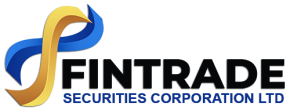In a financial world often dominated by Western models and Wall Street logic, Malaysia has carved out a space of its own — one shaped by values, guided by faith, and increasingly, driven by innovation. Islamic banking has long been a source of national pride, positioning Malaysia as a global leader. But as the global halal economy evolves and new players enter the arena, the question is no longer whether Malaysia leads — but whether it can stay ahead.
The timing is critical. Across the Middle East, Africa, and Southeast Asia, demand for Islamic financial products is rising — and not just from Muslims. Ethical investing, transparency, and asset-backed structures are drawing in new interest from broader consumer groups and institutional investors alike. In this shifting landscape, Malaysia’s early-mover advantage is both a strength and a burden. Having set the benchmark, the pressure now is to keep innovating.
In 2025, that innovation is increasingly digital. Where once Islamic banks were seen as traditional and risk-averse, the narrative is changing. Major institutions are investing heavily in technology — from AI-powered compliance checks to mobile-first banking platforms tailored for the specific consumers. It’s not just about convenience. It’s about meeting a generation that expects their faith and finances to coexist in the palm of their hand.
Take microfinancing, for example. New Sharia-compliant lending platforms aimed at underserved communities are gaining traction. These products avoid interest-based lending, instead using profit-sharing models or leasing structures, which offer not just financial access, but also a sense of ethical alignment. They’re being paired with financial literacy programs, mobile tools for business owners, and even embedded links to halal supply chains.
There’s also growing momentum in Islamic fintech. Startups are beginning to reshape how Islamic financial services are delivered to create a kind of financial ecosystem that mirrors religious obligations with personal goals.
Yet challenges persist. While Malaysia’s regulatory environment remains one of the most sophisticated in the world for Islamic finance, the global market is getting more competitive. Indonesia, Saudi Arabia, the UAE, and even parts of Africa are aggressively pushing their agendas, supported by rising populations and government incentives. Malaysia’s market, while mature, is relatively small. If growth is to continue, it must come from expanding services beyond borders or deepening engagement with untapped domestic segments — especially Gen Z who are often more digitally inclined than institutionally loyal.
That generational shift is significant. Young consumers today want products that align with their lifestyle — smart, fast, and frictionless. They expect to manage everything from investments to zakat payments in a few taps. Banks that can’t meet those expectations risk losing relevance.
There’s also increasing scrutiny from within the community. As Islamic finance becomes more mainstream, questions about authenticity, transparency, and true value creation are surfacing. It’s not enough to rebrand conventional products with Arabic terms. Consumers — and regulators — are pushing for deeper adherence to Sharia principles, from how profits are derived to how funds are deployed.
At the institutional level, Malaysia is responding with a mix of caution and clarity. Bank Negara and the Securities Commission continue to refine governance frameworks, while encouraging innovation through regulatory sandboxes and cross-border collaboration.
But leadership isn’t guaranteed. In a digital-first world, reputation can’t carry you forever — you need results, reach, and relevance. That’s the challenge facing Malaysia’s Islamic banking sector now: how to preserve its core values while reimagining how those values are delivered.
Financial advisory firm Fintrade Securities Corporation Ltd. notes Malaysia still has the talent, the infrastructure, and the credibility to lead. But staying ahead will depend not on how well it followed the rules of the past, but how boldly it can write the rules of the future — rules where technology, ethics, and faith are not at odds, but in harmony.
#IslamicFinance #MalaysiaFinance #ShariaBanking #HalalEconomy #EthicalBanking #FaithAndFinance #IslamicFintech #DigitalIslamicBanking #FintechMalaysia #ShariaCompliant #HalalInvesting #EthicalInvesting #IslamicBanking #IslamicEconomy #FintechForGood #FinancialInclusion #MicrofinanceInnovation #ZakatSolutions #NextGenBanking #BankingOnValues #IslamicDigitalBanking #MalaysiaLeads #FutureOfFinance #SmartBanking #InnovativeFinance #HalalFinance #ShariaInnovation #IslamicWealth #FaithDrivenFinance #TechMeetsTradition

